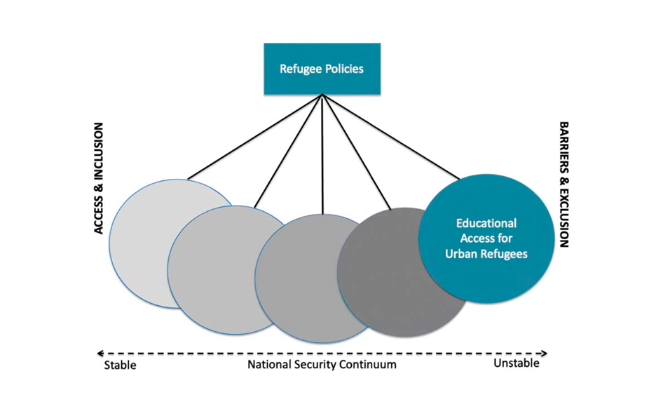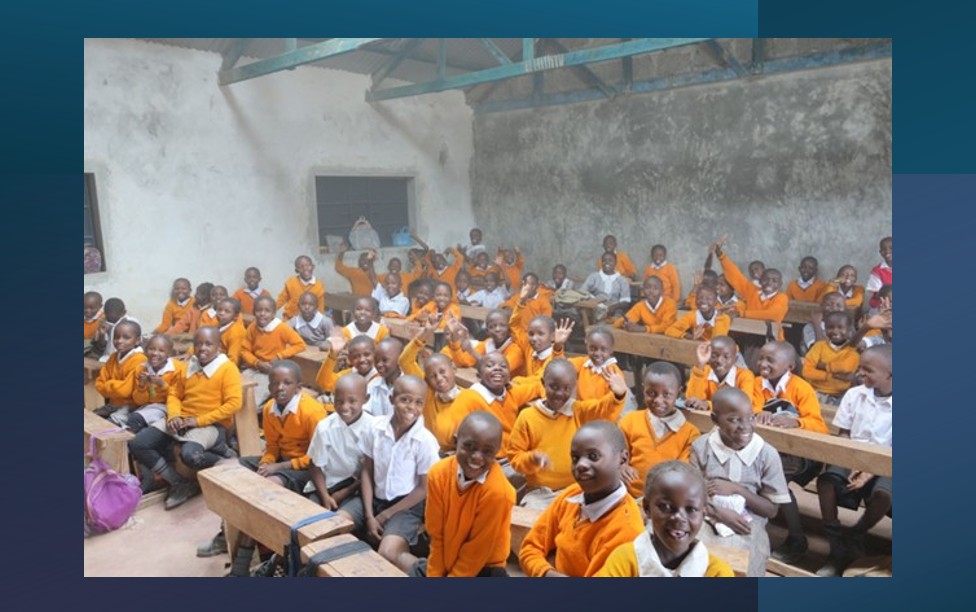Amid growing global commitments to refugee inclusion, Kenya stands at a crossroads. A new article by Professor Mary Mendenhall and two former students, Drs. Danielle Falk and Peter Bjorklund Jr., shed light on the lived contradictions urban refugees face in accessing education, revealing how national policy swings between inclusion and exclusion in response to security threats and rising xenophobia.
A Policy Pendulum in Motion
The article introduces an innovative conceptual framework: the policy pendulum. Drawing on punctuated equilibrium and securitization theory, the authors show how Kenya's refugee and education policies shift dramatically in response to external shocks like terrorist attacks. During times of peace, inclusive policies support refugee access to national schools. But when insecurity rises, restrictive laws resurface—recasting refugees as threats and swinging the pendulum toward exclusion.
As the authors write:
“The policy pendulum swings between extremes in allowing or disallowing urban refugees access to education. Implementation gaps deepen during times of insecurity, even as inclusive laws remain on the books.”

Urban Refugees: Out of Sight, Out of Policy
While Kenya is known for its camp-based refugee model, thousands of refugees live in cities like Nairobi—seeking education, safety, and stability. Yet they often find themselves invisible in policy implementation. Even as laws formally guarantee access to schooling, urban refugees face administrative blockades, discriminatory fees, xenophobic attitudes, and inconsistent enforcement—especially during times of heightened national tension.
Refugee Realities, Policy Disconnects
The research in Kenya was part of a larger study that we conducted on urbanization and schooling trends among refugee populations in Ecuador, Kenya, and Lebanon, which was supported by the U.S. State Department’s Bureau for Population, Refugees and Migration. In Kenya, the authors conducted interviews with humanitarian workers, educators, government officials, and school leaders, complemented by deep policy analysis. These insights reveal not just gaps in implementation but contradictions between policies themselves—particularly when refugee rights collide with national security agendas.
Lessons for Inclusive Reform
Ultimately, the authors urge governments, educators, and international actors to collaborate more effectively across sectors and to align education, refugee, and security policies. Crucially, it pushes for stronger mechanisms to guard refugee rights against reactionary reversals.
Read the full article here:
Urban Refugees’ Educational Access in Kenya: Policy Contradictions and Implementation Gaps amid National Insecurity and Rising Xenophobia - Published in Comparative Education Review, Vol. 69, No. 1, February 2025.
Related resources:
See here for the original research report (co-led by Dr. Mary Mendenhall and Dr. S. Garnett Russell), related articles, resources, and podcasts.
